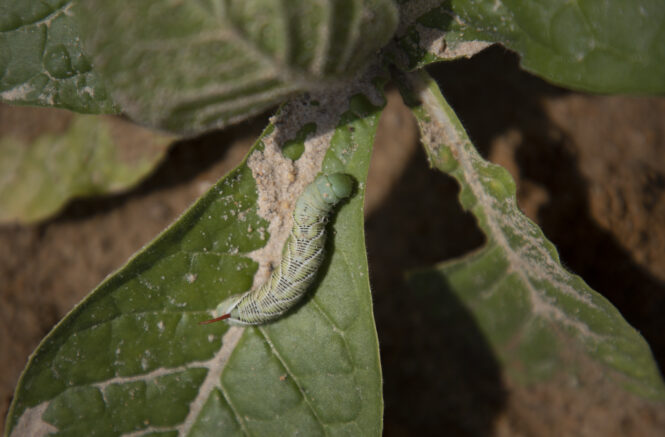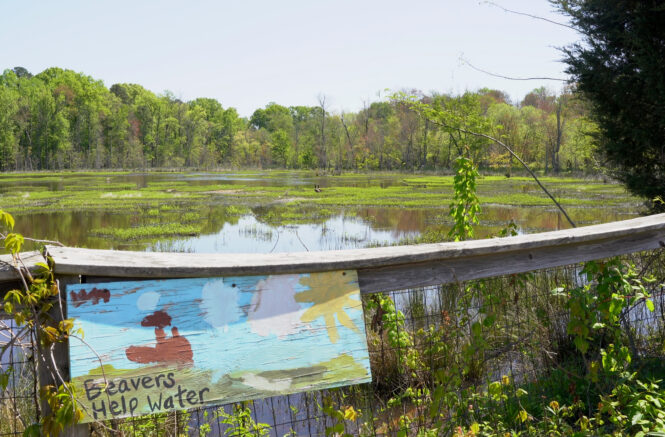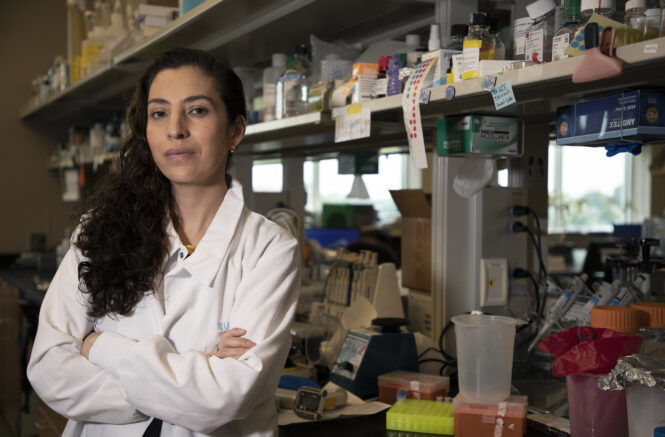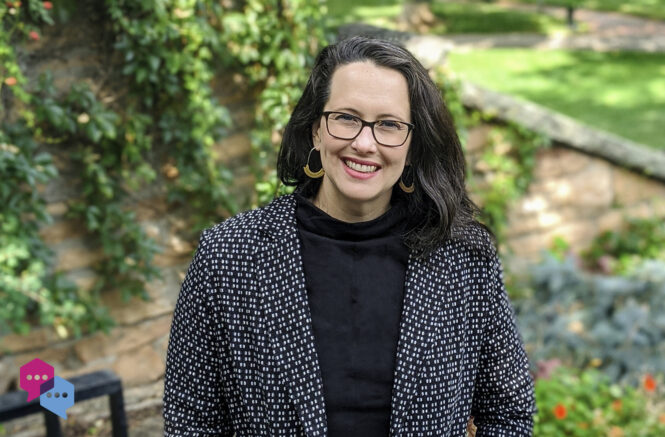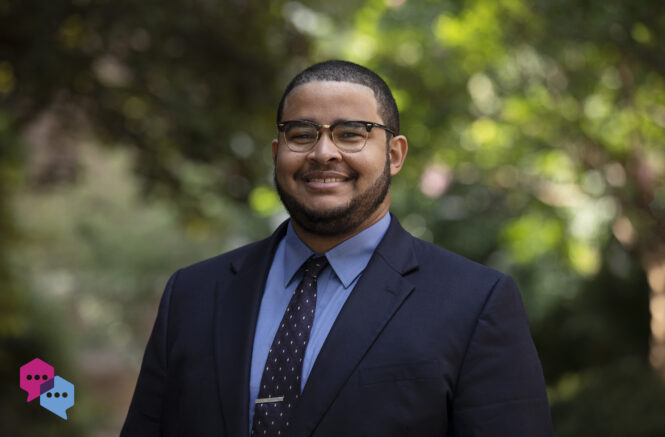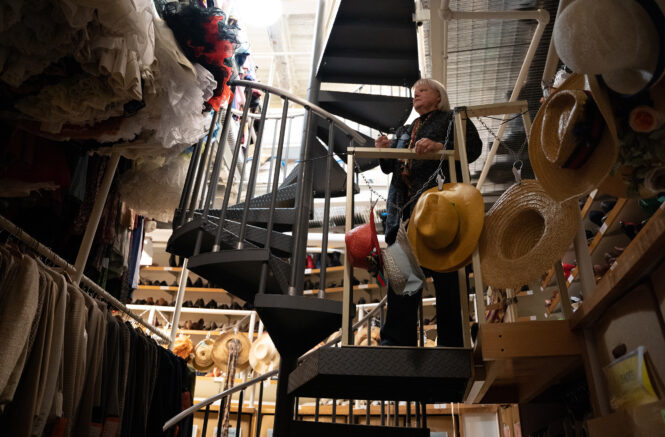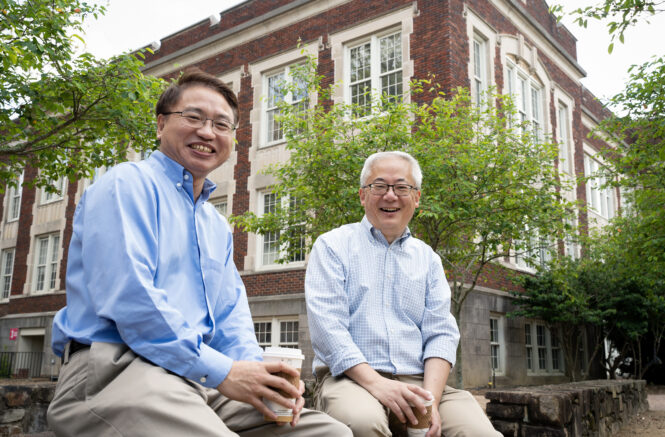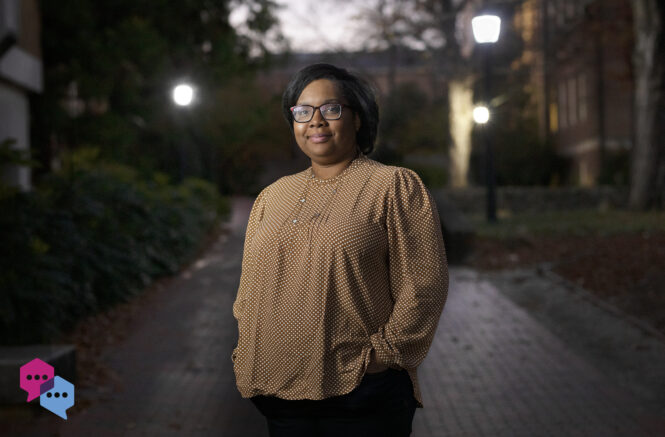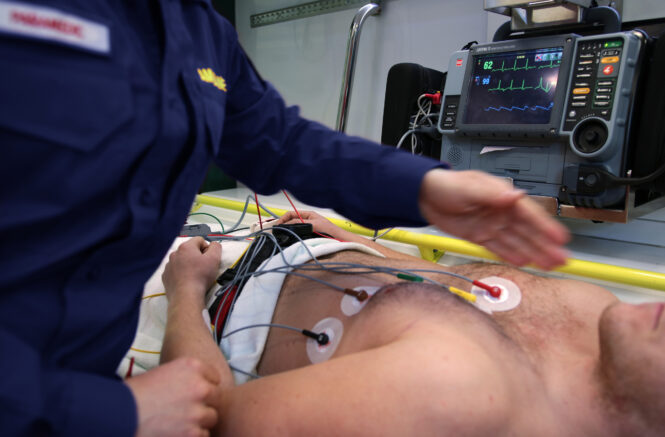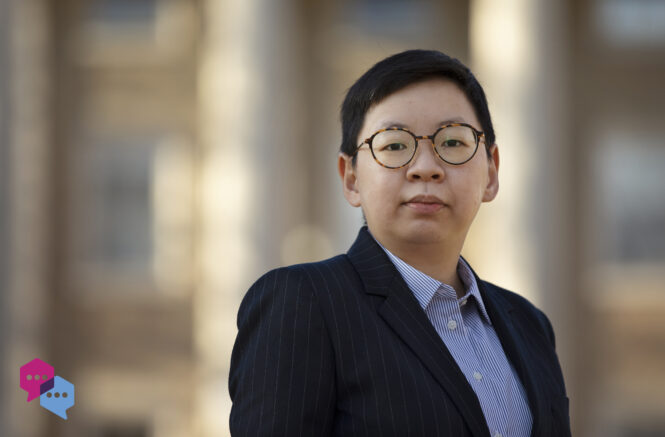Caterpillars in the Coal Mine
Butterflies and moths are indicators of the overall health of an ecosystem. Through fieldwork, lab experiments, and computer modeling, researchers in the Joel Kingsolver Lab strive to understand how changing temperatures are impacting the relationship between certain species and the plants they live on.
Leave It to Beavers
As urban regions in the Southeast continue to grow and develop, harmful pollutants enter nearby waterways more frequently. UNC researchers think one of the best solutions to prevent this may be investments in the habitats of the furry neighbors already in our backyards: beavers.
Paving New Paths to Choline
UNC Nutrition Research Institute assistant professor Isis Trujillo studies choline, an essential nutrient that is critical for brain development in the womb. A former postdoctoral researcher, she now runs her own lab and is exploring choline’s impact on gene expression to uncover how maternal nutrition influences fetal brain growth.
Christina Rudosky
Christina Rudosky is a teaching assistant professor of French in the Department of Romance Studies within the UNC College of Arts & Sciences. She studies surrealism and why objects were coveted, collected, and brought to life through writing and art during this 20th-century avant-garde movement.
Keeping Rip Currents in Check
As a UNC graduate student, Greg Dusek’s dissertation was the development of a rip current prediction model for the North Carolina coastline. That was back in 2006. Since then, Dusek and his colleagues have continued to develop that project into what is now part of the most comprehensive and widespread rip current model in the U.S.
Julian Rucker
Julian Rucker is a postdoctoral researcher in the Department of Psychology and Neuroscience within the UNC College of Arts & Sciences and a fellow in the Carolina Postdoctoral Program for Faculty Diversity. He studies beliefs about structural racism, perceptions of societal racial inequality, and motivations to rectify racial disparities.
Searching for Better Ways to Search
In 2000, researchers in the School of Information and Library Science’s Interaction Design Lab were at the forefront of information retrieval on the World Wide Web. While technology and research methods have changed in the past 20 years, the basic premise of their research has not: how people navigate the internet in search of information.
For the Love of Fabric
How does the visual richness of clothes contribute to who we are? After nearly 50 years of designing costumes at UNC, Bobbi Owen is retiring. Her expertise in period-piece costume design has brought countless characters and productions to life at PlayMakers Repertory Company.
A Sharper Image
UNC researchers Jianping Lu and Otto Zhou have spent the last two decades refining technology that makes X-ray machines smaller, faster, safer, and sharper — research that’s changing the world of dentistry, medicine, and security.
Kimberly Burnett
Kimberly Burnett is a PhD student in the Department of English and Comparative Literature within the UNC College of Arts & Sciences. She studies the role of gospel music in African American literature and its relationship to depictions of Black womanhood.
A Cool Recovery
Before 2000, if a patient arrived at a hospital unconscious after undergoing cardiac arrest, their chances of leaving alive and with all their brain function intact was slim to none. Now, 50 percent wake up and go home thanks to a cooling therapy, brought to UNC in 2007 by emergency physician Larry Katz.
Zardas Lee
Zardas Lee is a PhD student in the Department of History within the UNC College of Arts & Sciences. They explore how people from small colonies in South and Southeast Asia pursued dreams of freedom and independence in the 1940s and ’50s while empires and superpowers dominated the world order.



